Bitcoin Integration Coming to the Internet Computer and InfinitySwap
Imagine integrating the most decentralized & liquid crypto market with the world’s most powerful smart contract framework through the most technologically advanced DEX on the planet. Well, this is just another roadmap addition to the most anticipated DeFi project in the space.
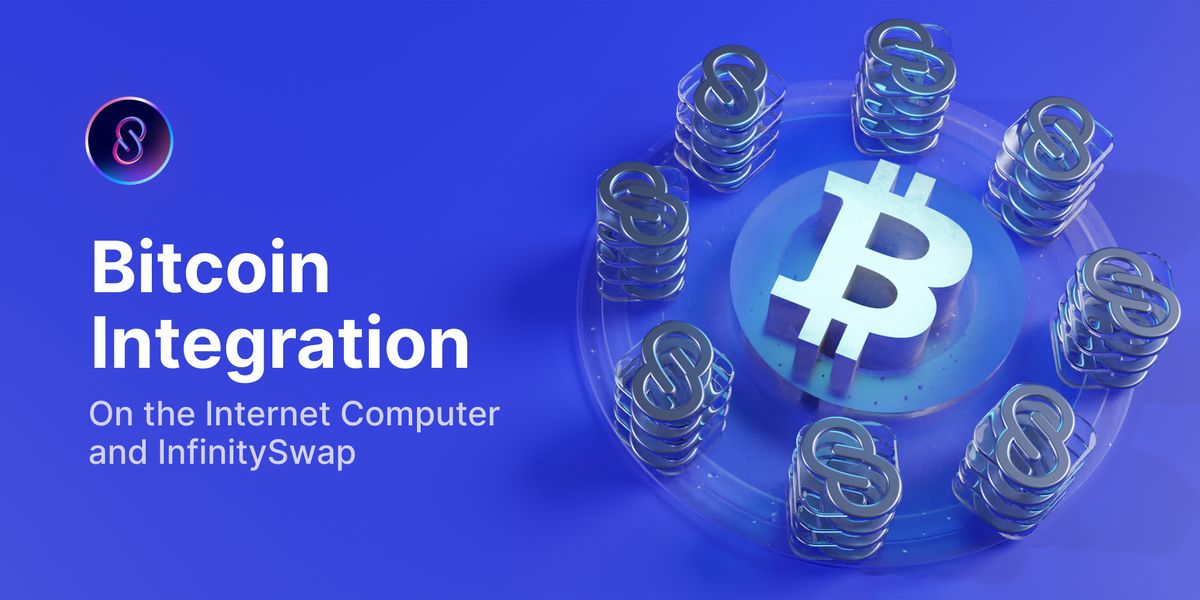
Imagine integrating the most decentralized & liquid crypto market with the world’s most powerful smart contract framework through the most technologically advanced DEX on the planet. Well, this is just another roadmap addition to the most anticipated DeFi project in the space.
How Bitcoin is currently used in DeFi
Currently, wrapping Bitcoin is the only way to utilize Bitcoin in DeFi. A Wrapped Bitcoin is an ERC-20 token that is a representation of Bitcoin on the Ethereum network. However, wrapping Bitcoin poses an issue with decentralizing finance, as services like RenVM and BitGo maintain custody of a user’s Bitcoin. This concept of a middleman holding one’s assets does not align with cypherpunk and DeFi ideals due to the security risk centralization pose. Hence, this is one of the main reasons why DeFi has not seen the widespread adoption of Wrapped Bitcoin, as, at the time of writing of this article, approximately 1.4% of the Bitcoin market is currently wrapped.
Solution
DFINITY is currently developing an alternative solution that will allow users to directly integrate their Bitcoin on a secondary network, removing the middleman and the need to ‘wrap,’ giving users complete custody of their assets!
This will be made possible thanks to threshold cryptography and chain key technology, which DFINITY has almost completed developing. The process works thanks to chain key, which is simply a threshold key, i.e., a subnet blockchain within Internet Computer Protocol (ICP) that has the public key but not the private key. The Private key is shared amongst nodes, and if sufficient nodes collaborate, they can create a signature for the chain key.
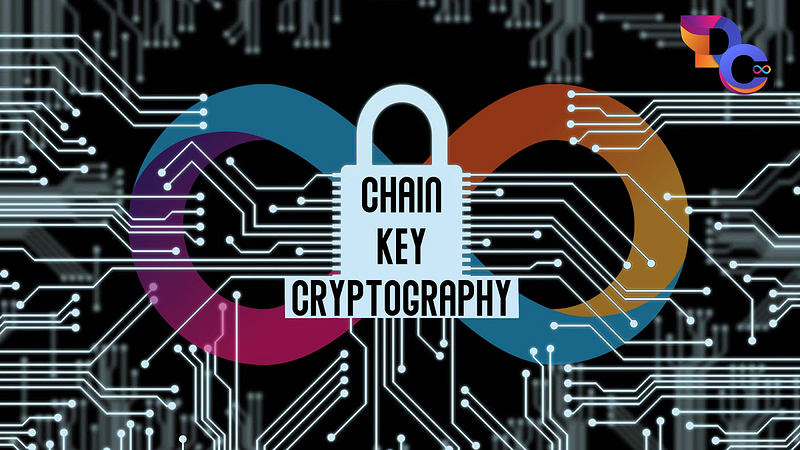
Smart contracts never actually have a private key. They simply call an API that instructs the blockchain as a whole to sign on their behalf. In addition, each canister (group of smart contracts) will have a Bitcoin Address already added in.
For those that stay true to cypherpunk and DeFi ideals, this is the only option for using Bitcoin in DeFi. Millions of Bitcoin holders are sitting on the sidelines waiting to stake, and now the IC is granting them the opportunity to do so.
Challenges
There are still some challenges that the IC faces.
Currently, the IC relies on BLS cryptography for threshold signatures. However, this technology does not extend to ECDSA, which is utilized by Bitcoin and Ethereum. As a result, Chainkey will need to be upgraded to support both cryptographic techniques.
This is a non-trivial undertaking, but well within the capabilities of the world-class cryptographers working at the DFINITY foundation.
Future Plans
With Bitcoin being the first blockchain that will be successfully integrated with the Internet Computer, DFINITY will continue to introduce interoperability with other blockchains and have plans to do so with Ethereum. As Dominic Williams’ explained in his How the Internet Computer can supercharge Ethereum, DFINITY stands to help ETH in its most troubled areas: (1) Cost of Storage (2) Cost of Computation, (3) Scalability.
One of the first benefits of BTC-ETH integration is storage. Today a GB of smart contract data can cost you about $100,000,000 on Ethereum. On the Internet Computer, you can expect that to be below $5 per year paid in cycles.
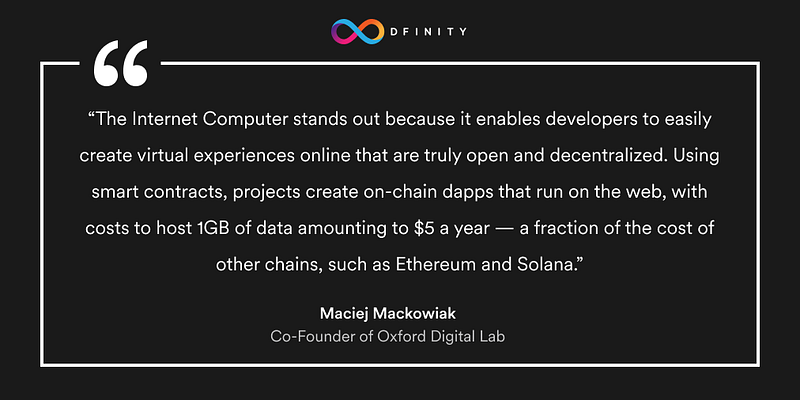
Furthermore, connecting the two will afford the same capabilities to smart contracts running on either chain. To make all this possible, Ethereum smart contracts need to call directly into the canisters (IC’s version of smart contracts). For example, in the near future, a DeFi system running on Ethereum may use smart contracts on the Internet Computer to securely serve user experience to end-users. This is opposed to using an insecure website hosted on the Big Tech cloud that forces end-users to trust the cloud service provider, website operator, and account database.
By tackling these three areas, we can really see a massive explosion in DeFi is imminent. A typical user will use the most decentralized and battle-tested smart contract ecosystem with the speed, security, and cost benefits of the Internet Computer.
Conclusion
InfinitySwap is in a unique position. As one of the few DeFi platforms developing on the Internet Computer, we have innovated by replicating Ethereum functionality on this very distinct architecture. As a team that contributed to scalability solutions on Ethereum, we believe that Bitcoin’s integration with ICP is not just a triumphant victory for blockchains, but a proof of concept for the interoperability solutions that are to come.
As Ethereum smart contract interoperability with the Internet Computer is being vigorously worked on, our ambition of being a DeFi hub translates across numerous blockchain ecosystems. Interactions through our IC-native platform could someday perform the desired action on any chain.
The integration will soon be notable for more than just cypherpunks, especially as it makes its way to the user experience. If you haven’t already created an IC internet identity, we highly recommend doing so. With only a fingerprint, you can seamlessly and securely send ICP, without the need to interact with keys and hardware wallets. Bitcoin transactions initiated on the IC will work in the same fashion, with the touch of a finger, essentially adding smart contracts to Bitcoin.
Connect with InfinitySwap
Twitter | Website | Telegram | Discord | Github

*Disclaimer: While every effort is made on this website to provide accurate information, any opinions expressed or information disseminated do not necessarily reflect the views of InfinitySwap itself.


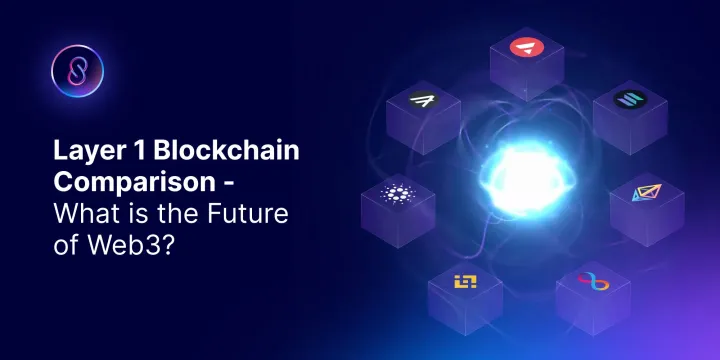
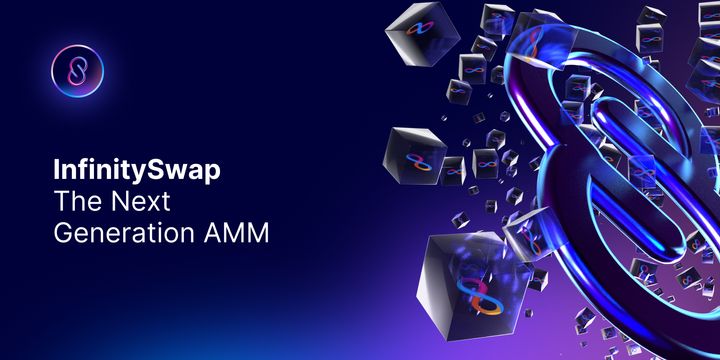

Comments ()